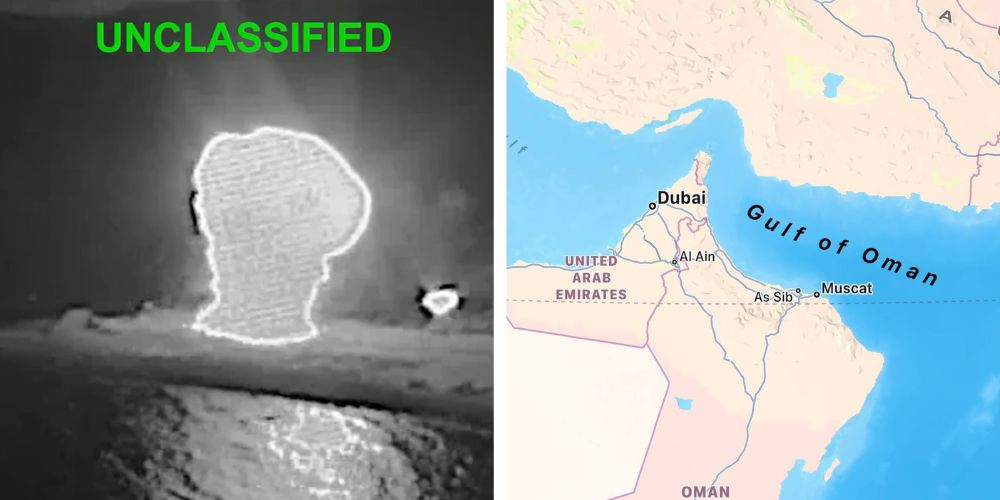CNN's Chris Cuomo used his diminishing pulpit last night to demand his guest, Steve Cortes, explain "what movement defined itself as nationalism [sic] that was positive and not oppressive to another."
Cortes – rarely ever on the back foot – responded immediately: "American nationalism".
He's correct.
America was founded with nationalism at its core. But it is a mature nationalism, and not one easily conflated with the horrors of blood-focused regimes of the past.
Born out of perceived oppression, rather than the will to oppress, America's historical tendencies have only ever become threatening to others when the nation abandoned its foundational principle of non-interventionism.
In other words, only imperialistic or globalistic tendencies have led America to grand geopolitical follies.
Knowing this to be true in his heart, Cuomo bizarrely rejected the premise of his own question.
"There's no American nationalism!" he shrieked, "No such thing!"
"There's no American nationalism!" – CNN's Chris Cuomo
Except that's really not true, and Cuomo should probably know that before opining in front of an albeit dwindling prime time audience.
A nationalism-denier like Cuomo will have trouble explaining the plethora of Google Search results on the subject. More importantly, he now faces the task of explaining to historians, researchers, journal authors, book authors, journalists, commentators, policy wonks, and politicians that there is "no such thing" as American nationalism.
[caption id="attachment_178571" align="alignnone" width="4751"] Independence Hall building on the 2009 design of a 100 dollar bill (Flickr, CC, Ervins Strauhmanis)[/caption]
Independence Hall building on the 2009 design of a 100 dollar bill (Flickr, CC, Ervins Strauhmanis)[/caption]
He will also have his work cut out for him explaining the founding of the United States without invoking key principles of the philosophy of nationalism. One of those is nationhood. The other is popular sovereignty. Finally, nationalists believe in an element of protectionism, to guard their nation against foreign interests, foreign power, or even infiltration. It's kind of all there, in the last paragraph of the Declaration of Independence:
...that as Free and Independent States, they have full Power to levy War, conclude Peace, contract Alliances, establish Commerce, and to do all other Acts and Things which Independent States may of right do. And for the support of this Declaration, with a firm reliance on the protection of divine Providence, we mutually pledge to each other our Lives, our Fortunes and our sacred Honor.
Amidst a resurgence of the phrase "American nationalism", researchers Bart Bonikowski (Harvard) and Paul DiMaggio (New York University) published a paper entitled "Varieties of American Popular Nationalism".
It is clear that American nationalism both exists, and is a critical part of the nation's founding and current make up, no matter how much Cuomo wishes it were not so.
The pair reported that most people agree with the idea that to be American means to speak English, to be a citizen, and to respect the nation's laws and institutions.
Perhaps this is why CNN and Cuomo are nationalism-deniers. This doesn't fit with their demands of open borders and mass illegal immigration. And it cannot be unwoven from the nation's history. Therefore, it must be denied.
If we're honest about it, they're America-deniers.
[caption id="attachment_178573" align="alignnone" width="1600"] The Grand Union flag (1775) - (Flickr/CC/Cliff)[/caption]
The Grand Union flag (1775) - (Flickr/CC/Cliff)[/caption]
Even critics of nationalism have had to accept American nationalism is indeed a thing, and comes in different flavors.
The Huffington Post laments the “Unhyphenated Americans”, the "Christian Nationalists", and the "New Nationalists".
National Review's Rich Lowry – hardly the frothing, Trumpian hatemonger of CNN nightmares – explained last year the "[t]hree key elements of American nationalism, it begins with God, it identifies a specific group of people, and lastly it is an idea that never dies."
It is clear that American nationalism both exists, and is a critical part of the nation's founding and current make up, no matter how much Cuomo wishes it were not so.
Then, to the broader point: is it good?
Cuomo asked which nationalistic endeavor had ever ended up not oppressing people. Is he maligning Indian nationalism and the expression of popular sovereignty and self-determination, there? Or is this just a way of say, "But, but, but, Hitler!"
When has any major political philosophy not rooted in faith, family, and flag (or God, King and country) not led to oppressive behavior?
Adolf Hitler's aspirations were inherently globalistic. His mechanisms were centralizing and socialistic. His "nationalism" was simply a means to an end i.e. phoney, and meant only to whip the people of his Germany into support for his idea of a big, German-dominated Europe (where do we hear that, today?)
But we could also flip the question on its head.
When has any major ideology not rooted in faith, family, and flag (or God, King and country) not led to oppressive behavior? Is nationalism the problem, or is human corruption the real issue?
This is where America drastically differs from historical nationalism: improving upon it and cauterizing the pitfalls it shares with all other political endeavors.
[caption id="attachment_178576" align="alignnone" width="4421"] Memorial to the Victims of Communism, Prague, Roman Boed/Flickr/CC[/caption]
Memorial to the Victims of Communism, Prague, Roman Boed/Flickr/CC[/caption]
Look how many people have died in the name of socialism, or communism.
How many have suffered at the hands of Japanese imperialism, or indeed even within the most benevolent and constructive empire the world ever knew: the British.
George Paik writes at the Foreign Policy Association:
America’s is an unusual nationalism. The nation created itself in an explicit Declaration of Independence. Most nationalities arose from mythical origins; no American nation existed until it declared itself. The North American colonies shared only British nationality before the Continental Congress, and the Declaration’s signers divorced those roots.
This is likely where we lose people like Cuomo.
To them, nationalism is dirty because it means "we are better than you". There is of course a strong sense of that in the United States – American exceptionalism.
But American exceptionalism is scarcely churlish, or nasty. It has been, and continues to be benevolent.
"Here, let us help you do that better," or "Maybe this approach is better".
It's lampoonable in the Team America, "F**k, yeah!" sense because of its inherent goodwill, not due to a lack of it.
"'Murica!" has become a memetic refrain of a self-aware, self-deprecating super power populace. Not one willing to police the world, but one with the consciousness of its might and requisite responsibilities.
But more than anything American nationalism basically means, "Don't rock our boat".
...more than anything American nationalism means, "Don't rock our boat".
In this sense Cuomo is correct, American nationalism is far more "patriotic" than expansionist. But that's not to say it isn't nationalism. All that means is America as a country learned from the follies of empires come and passed. The founders were nothing if not voracious readers, and America's founding was the substantiation of almost everything wise men ever knew.
Nationalism critic George Orwell wrote in his 1945 essay Notes on Nationalism: "Patriotism is of its nature defensive, both militarily and culturally. Nationalism, on the other hand, is inseparable from the desire for power. The abiding purpose of every nationalist is to secure more power and more prestige, not for himself but for the nation or other unit in which he has chosen to sink his own individuality."
[caption id="attachment_178577" align="alignnone" width="2891"] Parliament Hill, Hampstead, Paolo Margari/Flickr/CC[/caption]
Parliament Hill, Hampstead, Paolo Margari/Flickr/CC[/caption]
But what if the amassing of power has changed over human history, from a theory of aggression, to one of protection? Surely a "progressive" or leftist would have to concede this is both possible and desirable?
And if American nationalism doesn't exist, why does the country have such a defensive footprint the world over?
If American nationalism is oppressive, why isn't that footprint routinely stamped on the necks of smaller nations?
While in recent decades, neoconservatives, neoliberals, and interventionists have tried to ruin America's "speak softly but carry a big stick" mentality, it is still not ingrained within the fabric of the nation. Americans are uneasy with wars, and reject expansionism.
If America was "nationalistic" in Cuomo's sense of the word (he actually means imperialistic), the national conversation would not be about building walls, but building space, power, and trampling the popular sovereignty of others.
Instead, Trump's America is generous and tolerant of the self-determination of others.
She isn't perfect, of course. Nor was it ever believed she could be ("A Republic, if you can keep it").
But America is keen and clear about one thing: don't come over here and rock our boat.
That's the sort of positive nationalism the country should take pride in.
Raheem Kassam is the Editor in Chief of Human Events





